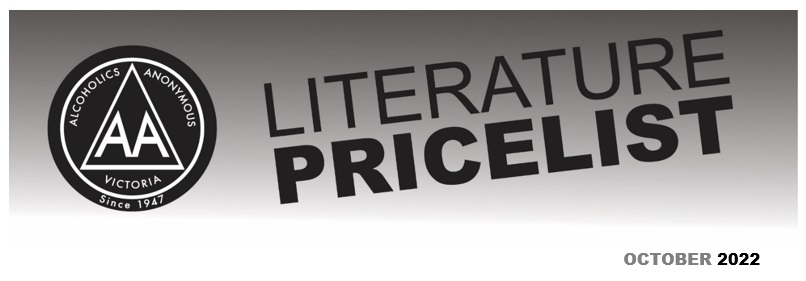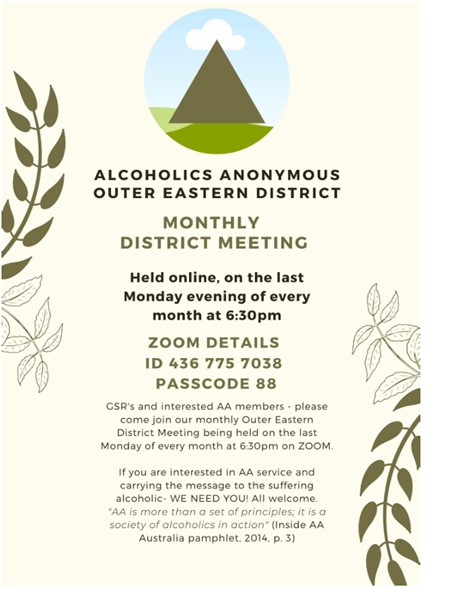Medical Opinion
Alcoholism is often referred to as “substance abuse” or “chemical dependency.” Alcoholics and non alcoholics are, therefore, sometimes introduced to AA and encouraged to attend AA meetings. Anyone may attend open AA meetings. But only those with a drinking problem may attend closed meetings or become AA members. People with problems other than alcohol are eligible for AA membership only if they have a drinking problem.
Dr. Vincent Dole, a pioneer in methadone treatment in the US for heroin addicts and for several years a trustee on the US/Canada General Service Board of AA, made the following statement: “The source of strength in AA is its single-mindedness. The mission of AA is to help alcoholics. AA limits what it is demanding of itself and its associates, and its success lies in its limited target. To believe that the process that is successful in one line guarantees success for another, would be a very serious mistake.”
Denial
Since denial of the problem is symptomatic of alcoholism, alcoholics tend to be evasive
when questioned about their drinking. Most alcoholics will resist any suggestion that
alcoholism is involved and may be equally resistant to the suggestion of Alcoholics
Anonymous as a last recourse.
Few have been told by a doctor that “You have Diabetes” only to then reply “I certainly am not a diabetic!” Yet when the health care professional makes a diagnosis of alcoholism, an alcoholic will often respond, “I don’t drink that much,”or may say, “I’m not that bad,” or will offer excuses for his or her drinking. Health care professionals can expect and anticipate this.
Rationalisation and denial are all part of the alcoholic’s illness. Initial rejection of AA can be part of the denial mechanism.
AA members having broken through their denial and faced the harm in their drinking, are
particularly suited to helping others break through their denial.
AA & Alcoholism
Members of AA have found that effective recovery can only begin with a “self-diagnosis”;
that is with a recognition by the alcoholic of AA’s first step: “We admitted we were
powerless over alcohol – that our lives had become unmanageable.”
AA members have also found that recovery involves abstinence from alcohol, and that
abstinence on a long term basis requires fundamental changes in relationships with oneself, with others and with some power greater than oneself.
AA Members believe that once an alcoholic, always an alcoholic ie that no matter how
long a person is abstinent, if that person drinks again, the individual will have the same
disastrous response to alcohol that characterised the pre abstinence drinking. Thus, AA does not offer a cure, but, rather, a continuing process of recovery through the simple principle of not drinking one day at a time.
How We can Help You
Alcoholics Anonymous has many AA members and Groups who are available to provide health care professionals with information about Alcoholics Anonymous. AA has a long history of cooperating with outside organisations. AA may be able to assist by arranging AA speakers or providing information about AA.
For professionals working with people who have special needs, we have AA material in Braille, DVD’s in USA Sign Language, easy-to-read pamphlets, and much more.
If you would like further information about Alcoholics Anonymous please contact Central Service Office Victoria. If you are a professional and would like an information pack please provide your postal address.






